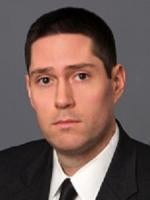On Wednesday, October 19, 2016, a panel of the U.S. Court of Appeals for the D.C. Circuit (including Hons. Srikanth Srinivasan, Harry T. Edwards, and Cornelia Pillard) heard argument in ACA International v. FCC (D.C. Cir.), the much-anticipated challenge to the FCC’s July 2015 TCPA Order (“July 2015 Order”). The court’s questioning of counsel for Petitioners and Respondents focused on a few key issues presented in the ACA’s challenge to the July 2015 Order.
With respect to the July 2015 Order’s attempt to expand the scope of the word “capacity” in the definition of automatic telephone dialing system (“ATDS”), the panel pressed the FCC to commit to one of its various conflicting pronouncements about present capacity versus human intervention. The court appeared to struggle with the fact that the July 2015 Order would cover equipment that merely has the “capacity” to function as an ATDS even when it is used to make manually-dialed calls. In particular, the court pressed both sides on whether calls from a smart phone with an auto-dialing app would constitute calls from an ATDS even when calls were manually dialed. At least one judge on the panel stated that the statute’s plain language appears to preclude such a finding except in cases where equipment’s auto-dialing function is used to make a call.
The court also focused on ACA’s argument that the TCPA applies only to equipment that truly functions as a random or sequential number generator. To that end, the court explored with both sides whether the text of the statute’s definition of ATDS is ambiguous such that deference to the FCC’s interpretation is called for. The panel asked questions about whether Congress has ratified the FCC’s 2003 and 2008 pronouncements about predictive dialers and related technology when Congress later amended the TCPA without disturbing the FCC’s orders or whether industry groups waived the right to contest this issue by failing to challenge the earlier orders.
Regarding the definition of “called party,” and the one-free-call rule established in the July 2015 Order, the court’s questions to both parties suggest that it is looking for a way to balance the challenge of calls to reassigned numbers with the need to avoid chilling permitted calls and text messages to numbers where consent was previously provided.
And finally, the court grappled with the FCC’s refusal in the July 2015 Order to allow callers to designate the means by which a recipient of calls may revoke consent. Notably, counsel for the FCC conceded that the July 2015 Order permits parties to contract as to the permitted means of revocation, but took the arguably untenable position that the FCC would not permit a revocation term where it is included in a “contract of adhesion.” Such contracts form the basis of most agreements for consumer products and services.
At the conclusion of the hearing, the case was submitted to the panel for review, and a decision is expected within the coming months.






 />i
/>i

